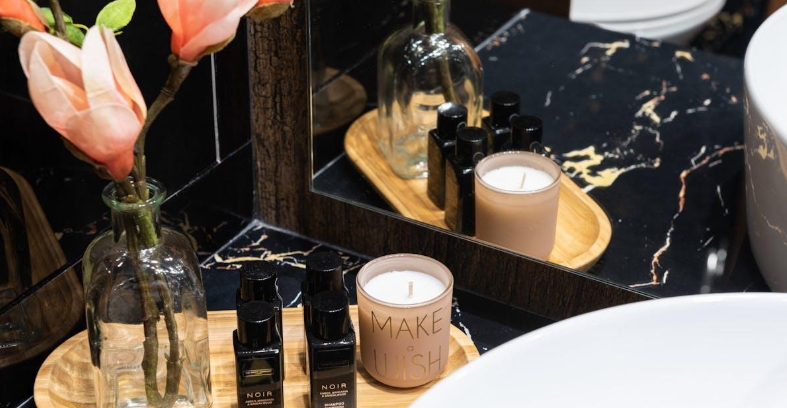
In today's wellness landscape, where an overwhelming array of products beckon us from every corner, we often find ourselves grappling with questions of trustworthiness. With so many choices, which ones deserve our time and investment? Understanding what makes a wellness product truly trustworthy requires more than just a quick glance at the label, it necessitates a careful consideration of multiple factors, including ingredient quality, transparency, and ethical practices.
To help untangle the noise, we’ll even look at case studies like “is provitalize a scam” to see what red flags or reliable indicators emerge when a product’s claims are challenged. Let’s dig deeper into what it means to engage with wellness products that we can genuinely believe in.
Understanding Wellness in a Modern Context
In recent years, our perception of wellness has evolved significantly. No longer confined to mere physical health, wellness now encompasses mental, emotional, and even environmental well-being. This broader framework means that when we talk about wellness products, we are referring to everything from dietary supplements and skincare to holistic therapies and mindfulness applications. With this expansion comes the responsibility to scrutinize the products we choose to integrate into our lives.
Also, as consumers become more informed and discerning, we recognize that wellness is not just about feeling good, it's about being fully engaged in a lifestyle that promotes our overall health. Considering this, our definition of trust in wellness products has also shifted. It's imperative that we not only look for efficacy but also for transparency, ethical practices, and brands that resonate with our values.
The Importance of Trust in Wellness Products
Trust isn't just a buzzword: it's the foundation upon which we build our wellness routines. When we invest in a wellness product, we do so with the expectation that it will deliver the benefits promised on the label without risk to our health or wellbeing.
This is especially critical given the rise of misinformation and the prevalence of products that don't meet safety or quality standards. According to recent studies, a significant percentage of consumers have reported skepticism about the claims made by wellness brands. This skepticism underscores the need for transparency and reliability in the products we choose. By selecting products from brands that prioritize trustworthiness, we can foster a healthier relationship with wellness that enhances our lives.
Key Factors That Indicate Trustworthiness
When evaluating wellness products, several core factors can help us determine their trustworthiness. Understanding these factors equips us to make smarter, more informed choices.
Transparency and Ingredient Sourcing
First and foremost, transparency is key. Brands that openly share where their ingredients come from and how they are processed demonstrate a commitment to quality. For instance, organic sourcing and sustainable farming practices not only promote health but also advocate for environmental stewardship. We should seek out products that provide detailed information about their sourcing methods, and ideally, brands that offer insights into their supply chain.
Third-Party Testing and Certifications
Third-party testing is another essential aspect we should consider. Products that have been evaluated by independent organizations provide a layer of security that self-reported claims cannot. Certifications from reputable bodies ensure that a product has undergone rigorous safety and efficacy assessments, giving us confidence in our choices. Look for seals from organizations like the NSF International, which can provide assurance that the product we're considering has met high-quality standards.
Customer Reviews and Testimonials
Finally, we cannot overlook the value of customer reviews and testimonials. While everyone's experience may differ, aggregating feedback from other users can give us an indication of a product's effectiveness and reliability. Brands that encourage reviews and address customer concerns display accountability and foster an engaged community, enhancing our trust in them.
Brand Reputation and Ethical Practices
Brand reputation plays a crucial role in how we perceive trustworthiness. Companies with a history of ethical practices tend to attract loyal customers. These practices might include fair labor policies, sustainable sourcing, and community engagement initiatives. When we support brands that prioritize ethical considerations, we're not only investing in our wellness but also supporting a business model that prioritizes the greater good.
We would benefit from conducting our due diligence, researching brands to understand their practices. Resources like the Better Business Bureau can provide insights into a brand's history, while websites dedicated to ethical reviews can highlight companies making a difference in the wellness space.
Navigating the Wellness Market
Navigating today's wellness market can feel overwhelming due to the sheer volume of options available. Every day, new trends emerge, each claiming to be the next breakthrough in health and wellness. So, how can we filter through the noise to find products that resonate with our values and health goals?
One effective strategy is to stick to brands we know and trust while remaining open to emerging products that demonstrate credibility through the factors we discussed earlier. Also, joining community forums or wellness groups where members share their experiences can provide valuable insights and recommendations. Listening to experiences from others who have sought similar solutions can significantly guide our choices. We'll also refer to trusted authorities, like the FDA, to help underpin our discussions with reliable information.
Media Contact
Company Name: BB Company
Contact Person: Mr.David
Email: Send Email
Address:304 S. Jones Blvd
City: Las Vegas
State: Nevada 89107
Country: United States
Website: thebbco.com
